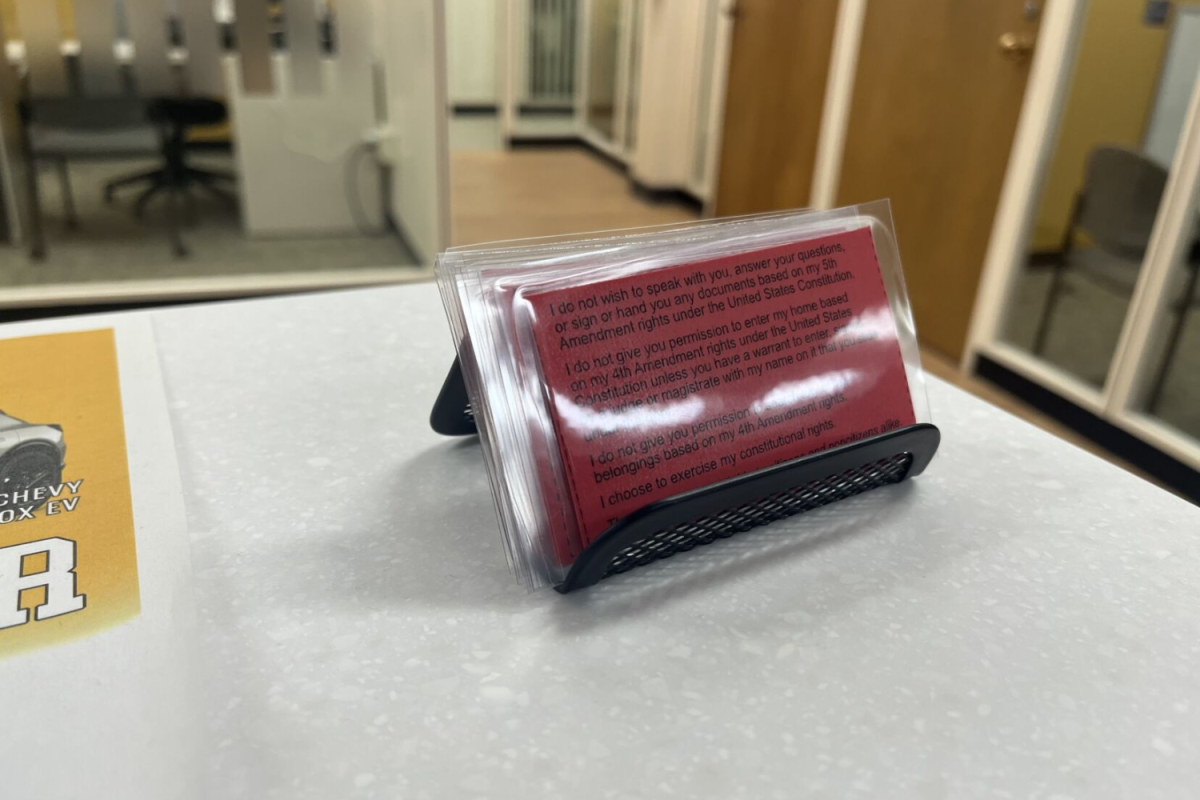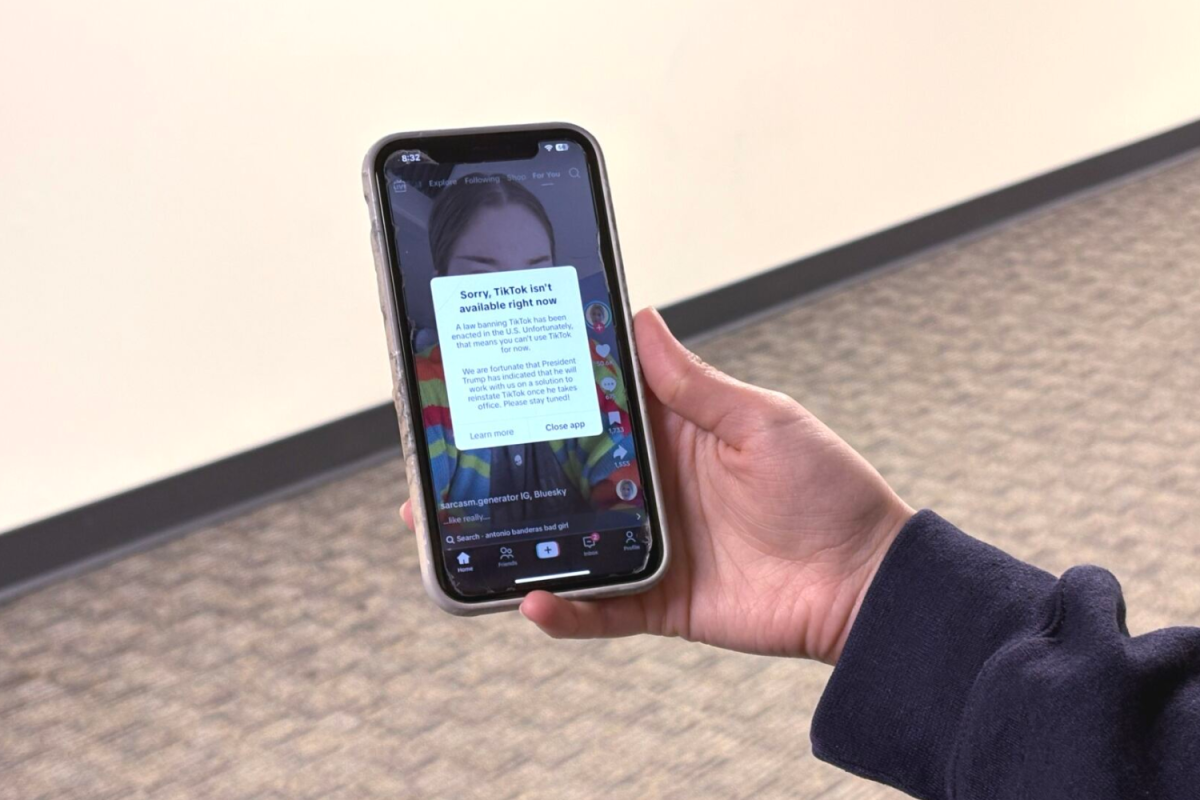Generation Z is one of the first generations to be digitally connected from a young age. As young adults now, Gen Z recognizes that a reliance on digital connection, especially social media, has drawbacks leading some to embark on a “digital detox.”
“Digital detox,” was a phrase popularized in 2012, after the organization “Digital Detox,” hosted their first retreat, where particpiants were not able to use any devices. Now, the term is widely used across social media platforms to describe the process of taking a break from technology, with some BW students, such as Abigail Harr, a senior communication’s student and manager of two social media accounts, picking up the practice.
“I have participated in digital detox likely more often than most other people,” Harr said. “I participated in a recent six-day mission trip in which we did not have access to our phones or other technology.”
Harr said that during those times of forced digital detox, she noticed a decrease in her stress about the outside world.
“I really enjoy digital detoxing. It is something that I try to prioritize as much as I can,” Harr said.
While she said that it can be challenging for her to step away from the digital world, as she manages several social media accounts, she said that the detox is relaxing when possible.
She said that she personally recognizes that she experiences stress over appearances, especially when scrolling through social media.
“I used to follow the Kardashians. They objectified themselves, and that made me feel that I had to look a certain way. Then I unfollowed a lot of influencers,” Harr said. “Social media is responsible for general stress over appearance.”
Harr said that she feels that the generations younger than Gen Z will suffer even more than her generaton, since they have an even stronger connection to their digital devices. She said it must be hard to be in a younger generation that had electronics given to placate them, especially during covid.
“I think it depends on your career path and your place in life. It is definitely a situational and person-to-person thing,” Harr said. “A complete digital detox is unrealistic. We pay for our food, we enter our garages and homes through our digital devices, and our school is designed for us to use our digital devices.”
Similar to Harr, Danny Snakovsky, a senior exercise science major at BW, said a complete digital detox is probably “far-fetched.”
Snakovsky said that he believes it is implausible that the Gen Z community would turn in their smartphones for flip phones, as some suggest doing.
“I would just delete my apps as a way of removing some digital temptation,” Snakovsky said.
Snakovsky said that the more time that he spends on social media, the more stressed he feels at the end of the day and that though many view their social media time as a relaxing down-time, he has made a conscious effort to limit his exposure.
“The more time you spend comparing yourself to others, the more unhappy you will be; because comparison is the destroyer of all joy,” Snakovsky said. “Choosing not to look at an image, recognizing filtered pictures and veering away from negative news is best”
Snakovsky also said he believes that Gen Z is at a distinct disadvantage due to growing up in the digital age, adding that he believes his generation is on edge as a result.
“It all comes down to discipline,” Snakovsky said. “You do not need social media. Treat your phone like a tool. Don’t treat it as a source of connection with the world, treat it as a tool to learn and grow yourself.”
Clare Gross, assistant professor in the Department of Communication Arts and Sciences, said that she realizes that a true digital detox may not be realistic for most people.
“Balance is important, too much time off of social media leads to binging,” Gross said.
She said that she recognizes that overexposure, especially on TikTok and Instagram, takes a toll on mental processing. She said it can trigger more mental stress, even though people generally turn to social media in an effort to de-stress.
“I have, maybe selfishly, done a digital detox,” Gross said. “It’s so easy to just pick up your phone and scroll. Much of what we see on our phone is funny or even interesting, but it isn’t always telling us anything we need to know.”
She said that if she needs to focus on a task at hand like grading papers, she will intentionally leave her phone in another room, or turn her phone off so that she cannot see any notifications.
Additionally, Gross said when she is spending time with people, she opts to put her phone away.
Gross said that she has noticed a strong reliance on social media with Gen Z, not only in students personal lives, but in the classroom as well.
“I notice in my classes, even if I have asked for phones to be turned off or put away, I see students who have then pulled up TikTok on their laptops,” Gross said.
Studies have proven that leaving social media “reduces stress,” Gross said. She suggests scheduling reasonable amounts of digital time into one’s day. Especially during a demanding time, such as finals, students may want to limit their digital time, so scheduling this time into their busy schedule is helpful.
“I think we need to take the idea of ‘digital detox’ and break it down into a format that works for you,” Gross said. “Set limits for yourself. It is definitely a good time to try some detox to see what really works for you.”
































